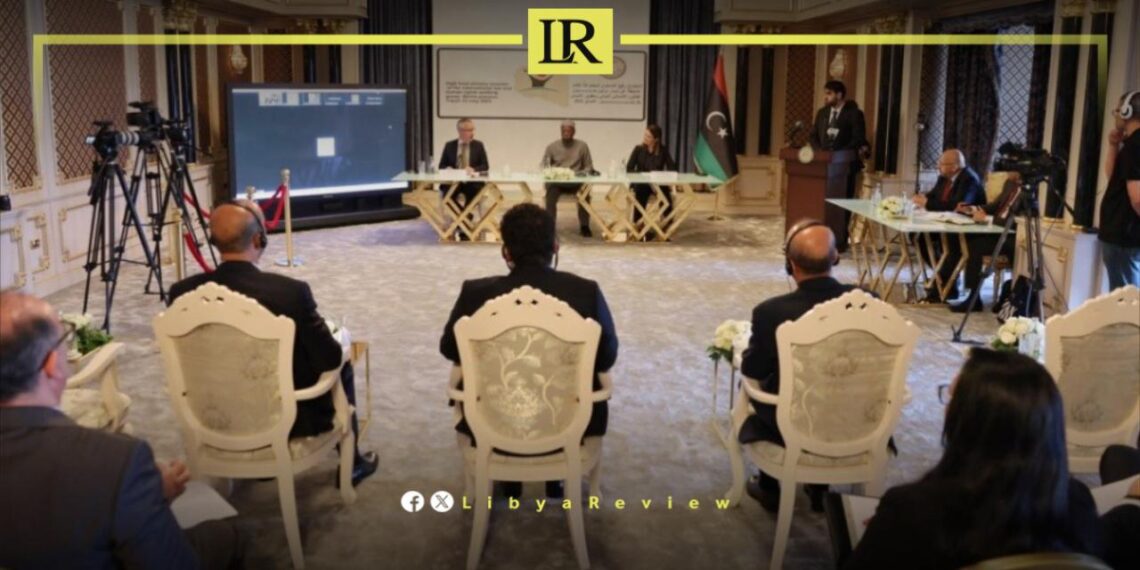The United Nations Support Mission in Libya (UNSMIL) confirmed the convening of an Economic Working Group meeting in Tripoli last Thursday. The meeting aimed to revive efforts to support Libyan parties in facing financial and economic challenges.
In a statement released on Saturday, UNSMIL noted that the meeting included co-chairs of the Berlin Process Economic Working Group, initiated by the European Union. Participants represented group members from Egypt, the European Union, the United Nations, and the United States.
The mission emphasized that the meeting focused on “reviving efforts to support Libyan parties in facing financial and economic challenges, with the goal of enhancing stability and economic opportunities for the Libyan people.”
Last Wednesday, Head of the Presidential Council Mohamed Al-Mnifi met with EU ambassadors to Libya. The discussion heavily centered on the security and economic situation, with diplomats warning about “the risks of financial corruption in Libya and its impact on destabilizing the Mediterranean and Sahel regions.” They stressed the need for a national mechanism to combat corruption.
During the meeting, the ambassadors reaffirmed their support for facilitating a Libyan-led and Libyan-owned political process. They welcomed the call for municipal elections and urged for their facilitation across the country.
Additionally, the ambassadors emphasized the necessity to “support Libya in the removal of fighters, mercenaries, and foreign forces, and to establish a national mechanism for transparent and equitable budget and resource distribution.” They expressed full support for the Presidential Council’s national reconciliation project and any dialogue that would lead Libya to elections.
Last Sunday, Acting Head of the UN Mission to Libya, Stephanie Williams, stated that she met with U.S. Special Envoy Richard Norland and the Chargé d’Affaires at the U.S. Embassy, Jeremy Berndt, to discuss the Libyan political situation.
Williams highlighted their agreement on “the importance of adopting a unified international stance to overcome the current impasse and facilitate an inclusive political process led and owned by Libyans.”


